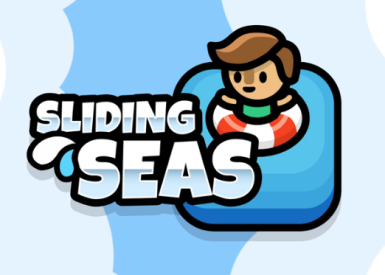The introduction of central self-exclusion systems in various countries, including Sweden's Spelpaus.se, was intended to promote responsible gambling. However, the effectiveness of these systems has been under scrutiny. Critics argue that while these systems aim to provide a safety net for problem gamblers, they may also be pushing players towards unregulated offshore casinos.

1. The Intent and Mechanism of Self-Exclusion Systems
Central self-exclusion systems like Spelpaus.se are designed to offer players a way to voluntarily exclude themselves from all legally licensed gambling activities. While this is a commendable tool for combating gambling addiction, the system's all-encompassing nature might not cater to the diverse needs of different gamblers. The inability to customize self-exclusion durations or the types of gambling activities covered can be too restrictive for some players, leading them to seek alternative platforms outside the regulated market.
2. Overreach and Inflexibility of Regulations
The stringent nature of these regulations, often perceived as overreaching, does not allow for flexibility or personalization. Players who might want to self-exclude from certain types of gambling but not others find themselves unable to do so. This one-size-fits-all approach may inadvertently push players towards offshore casinos where such strict regulations do not apply, seeking a more tailored gambling experience that aligns with their individual preferences.
3. The Rise of Offshore Casinos
As a result of these stringent regulations, players are increasingly turning to offshore casinos that are not bound by local self-exclusion systems. Websites like casinoutansvensklicens.co highlight the growing popularity of these platforms, offering players alternatives to avoid Spelpaus and other similar systems. These offshore casinos often provide more attractive bonuses, a wider range of games, and fewer restrictions, making them appealing to players who feel constrained by the limitations of the regulated market.
4. Unintended Consequences for Responsible Gamblers
Central self-exclusion systems might inadvertently penalize responsible gamblers who make an impulsive decision to self-exclude. Once enrolled, they are unable to access legal gambling platforms for the duration of their exclusion, regardless of their actual gambling behavior. This blanket approach doesn't differentiate between problem gamblers and those who may have self-excluded as a preventative measure or in a moment of frustration. This inflexibility can frustrate responsible gamblers, pushing them to seek out offshore casinos where they can continue to play without the constraints of the self-exclusion system.
5. Difficulty in Enforcing Self-Exclusion on Offshore Sites
Enforcing self-exclusion on offshore gambling sites presents a significant challenge. These sites operate outside the jurisdiction of national regulatory bodies, making it difficult to ensure compliance with self-exclusion requests. Consequently, gamblers who have self-excluded via systems like Spelpaus.se can still access offshore sites, effectively bypassing the protective intent of self-exclusion. This loophole undermines the effectiveness of the self-exclusion system, as players who are struggling with gambling addiction can easily find ways to continue gambling on unlicensed sites.
6. Impact on the Regulated Gambling Market
The rise of offshore casinos in response to strict self-exclusion systems has broader implications for the regulated gambling market. As players migrate to these unlicensed platforms, regulated casinos lose revenue, which can impact the funding of responsible gambling initiatives and other public interest projects typically supported by gambling taxes. This shift also poses a risk to player safety, as unregulated sites may not offer the same level of consumer protection, fair play, and responsible gambling measures as licensed operators.
The implementation of central self-exclusion systems, while well-intentioned, has led to a series of unintended consequences that challenge their effectiveness. The inflexibility of these systems, along with the difficulty in enforcing self-exclusion on offshore sites, has driven a significant number of players to unlicensed casinos. This trend not only undermines the purpose of these systems but also impacts the regulated gambling market and player safety. Going forward, a more nuanced approach that addresses the diverse needs of gamblers and effectively tackles the issue of offshore gambling is necessary for the success of self-exclusion systems.
















